 | | | “Those who contemplate the beauty of the earth find reserves of strength that will endure as long as life lasts.” —Rachel Carson, Silent Spring | | | | | | Spring arrives not with a roar, but with a slow, certain rhythm—the softened thaw of earth beneath our feet, buds stretching skyward, and a shift in the light that reminds us of life’s persistence. March calls us to begin again. It’s a season of return, of renewal, of hope. And it’s a time to remember that the beauty we witness is not passive but active, resilient, and shaped by those who dare to protect it. In the spirit of Women’s History Month, we celebrate the transformative contributions of women leaders, scientists, writers, and organizers whose courage and determination have shaped the course of environmental and social justice. From Rachel Carson’s groundbreaking work to the countless women whose stories remain untold, we honor the strength and vision that have challenged systems of exclusion and sparked collective change. At the Rachel Carson Council, we recognize that uplifting Women’s History Month is not only a tribute to the past—it’s a call to action to ensure that women’s voices continue to lead the charge toward a more equitable, inclusive, and sustainable world. A world envisioned by Rachel Carson. This month, RCC’s commitment to intergenerational collaboration was on full display at the Maryland Climate Summit. In a cultural moment often marked by division between generations, RCC helped lead a powerful narrative of unity led by Director of Policy and Program, Joy Reeves. Students, elders, and advocates came together in a shared space of learning, listening, and co-creation, proving that climate action grows stronger across age lines. 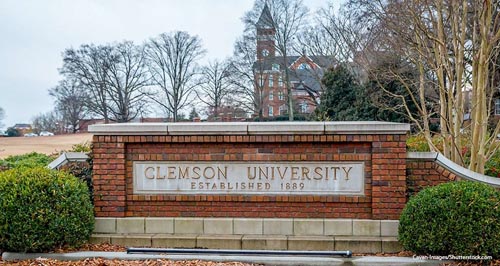 Farther south, President & CEO, Dr. Robert K. Musil visited Clemson University in South Carolina, where sustainability is rooted not only in campus spaces, but in community values. With deep ties to sustainable agriculture and economic equity, Clemson is continuing to build a legacy of climate commitment that adapts to the moment while staying true to its mission. Farther south, President & CEO, Dr. Robert K. Musil visited Clemson University in South Carolina, where sustainability is rooted not only in campus spaces, but in community values. With deep ties to sustainable agriculture and economic equity, Clemson is continuing to build a legacy of climate commitment that adapts to the moment while staying true to its mission.
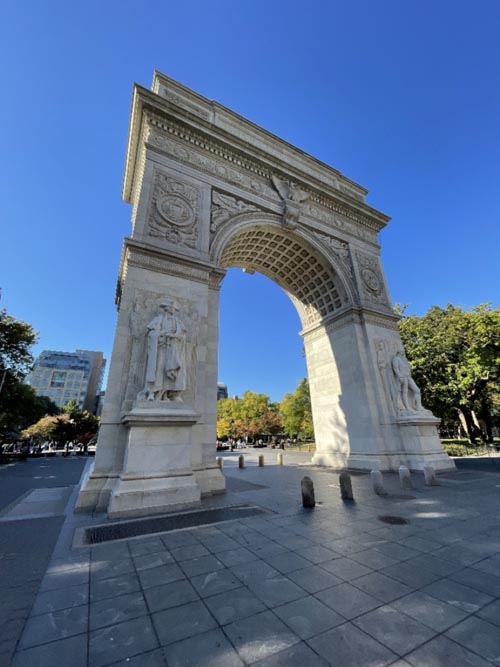 In New York, Director of Campus and Civic Engagement, Diego Tovar, visited four universities that are taking bold action to embed justice and sustainability at every level. New York University, nestled in the heart of Greenwich Village, has committed to reaching carbon neutrality by 2040—an ambitious goal supported by energy efficiency, academic offerings, and year-round climate events. Meanwhile, Queens College is integrating sustainability and environmental justice into the very fabric of city life through its green infrastructure projects, urban planning research, and student-led climate organizing. In New York, Director of Campus and Civic Engagement, Diego Tovar, visited four universities that are taking bold action to embed justice and sustainability at every level. New York University, nestled in the heart of Greenwich Village, has committed to reaching carbon neutrality by 2040—an ambitious goal supported by energy efficiency, academic offerings, and year-round climate events. Meanwhile, Queens College is integrating sustainability and environmental justice into the very fabric of city life through its green infrastructure projects, urban planning research, and student-led climate organizing.
Just outside the city, Stony Brook University continues to lead with science and strategy. As the anchor institution for the New York Climate Exchange, Stony Brook is developing cutting-edge solutions for coastal resilience and climate adaptation, proving that large-scale change begins with local leadership and visionary research. 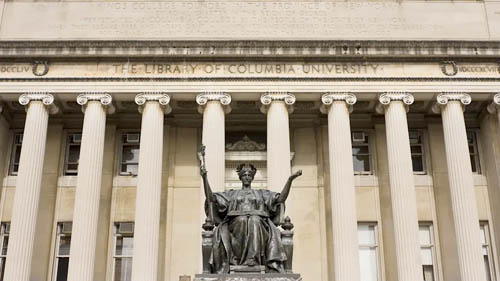 Yet as campuses step forward in climate and equity work, they also face mounting challenges to academic freedom. At Columbia University, new pressures from the Trump administration—including funding cuts and investigations—have raised alarms across the academic world. Scholars and students alike are calling for transparency and resistance against politically motivated attacks on higher education. Hundreds of Jewish academics have signed letters in support of Columbia, warning of the chilling effect such actions could have on free inquiry and student safety. The American Association of University Professors (AAUP) and the American Federation of Teachers (AFT) have filed suit, emphasizing the vital role of independent, open institutions in a democratic society. Yet as campuses step forward in climate and equity work, they also face mounting challenges to academic freedom. At Columbia University, new pressures from the Trump administration—including funding cuts and investigations—have raised alarms across the academic world. Scholars and students alike are calling for transparency and resistance against politically motivated attacks on higher education. Hundreds of Jewish academics have signed letters in support of Columbia, warning of the chilling effect such actions could have on free inquiry and student safety. The American Association of University Professors (AAUP) and the American Federation of Teachers (AFT) have filed suit, emphasizing the vital role of independent, open institutions in a democratic society. Meanwhile, environmental justice voices continue to rise from frontline communities. In Braddock, Pennsylvania, a recent high school graduate shares a powerful account of growing up in the shadow of a steel mill—and learning, late in her academic journey, just how deeply pollution and policy intersect. Her story is a call to empower youth to advocate for clean air, clean water, and the dignity of every neighborhood. 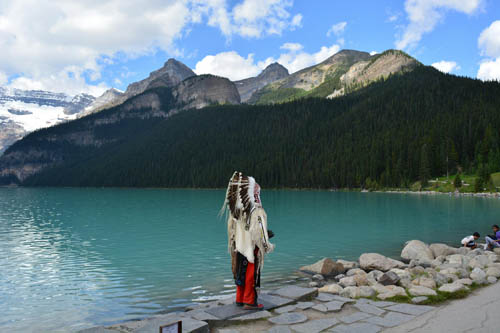 This month’s RCC Fellows Speak Out section lifts up voices from across the movement. In “Indigenous Stewardship is Climate Justice,” RCC Fellows spotlight the deep, ongoing role of Indigenous communities in protecting public lands and natural resources—even in the face of recent federal rollbacks. In New York, Josefa Marín’s story reminds us that recycling is more than a sustainability buzzword—it’s a way of life, survival, and labor justice for the city’s canners. In Alabama, the pollution of Hurricane Creek becomes the backdrop for a moving reflection on local journalism and the pursuit of truth in environmental disasters. And in “The Activist’s Case for Saving Theaters,” we explore how film can stir public consciousness and shift the way we understand our planet’s future—one story at a time. This month’s RCC Fellows Speak Out section lifts up voices from across the movement. In “Indigenous Stewardship is Climate Justice,” RCC Fellows spotlight the deep, ongoing role of Indigenous communities in protecting public lands and natural resources—even in the face of recent federal rollbacks. In New York, Josefa Marín’s story reminds us that recycling is more than a sustainability buzzword—it’s a way of life, survival, and labor justice for the city’s canners. In Alabama, the pollution of Hurricane Creek becomes the backdrop for a moving reflection on local journalism and the pursuit of truth in environmental disasters. And in “The Activist’s Case for Saving Theaters,” we explore how film can stir public consciousness and shift the way we understand our planet’s future—one story at a time. 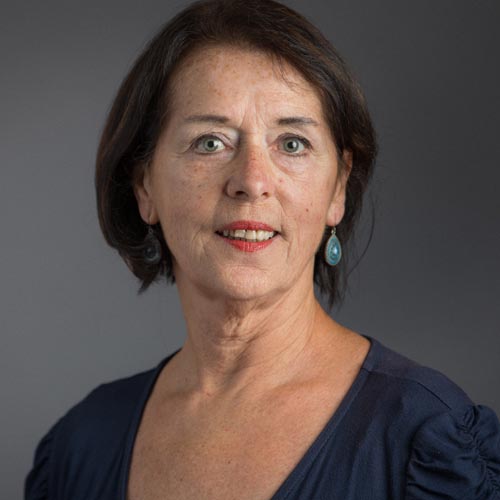 In Roots of Resistance, we honor Lois Gibbs, a fierce and fearless environmental advocate who exposed the toxic realities of Love Canal. Her legacy reminds us that ordinary citizens, especially women, have the power to take on powerful institutions and win. Gibbs’s fight for the health of her family and neighbors ignited a national movement for environmental health and corporate accountability, proving once again that change begins when we refuse to look away. In Roots of Resistance, we honor Lois Gibbs, a fierce and fearless environmental advocate who exposed the toxic realities of Love Canal. Her legacy reminds us that ordinary citizens, especially women, have the power to take on powerful institutions and win. Gibbs’s fight for the health of her family and neighbors ignited a national movement for environmental health and corporate accountability, proving once again that change begins when we refuse to look away.
Our Books section this month features The Insect Epiphany by Barrett Klein—a luminous and surprising exploration of the insects that shape our world, often in ways we fail to see. Through art, architecture, medicine, and ecology, Klein paints a portrait of six-legged allies that inspire design, fuel innovation, and remind us that even the smallest creatures are essential to human survival. With stunning illustrations and compelling anecdotes, this book is a must-read for anyone seeking to reconnect with the overlooked marvels of the natural world. As spring unfolds and the winds shift, we look toward the future with clarity and courage. Across campuses and communities, the work continues to build a world where justice and sustainability are not dreams, but daily realities. This RCC Campus Dispatch honors that work and the people behind it, as we move forward together. Stay informed. Stay engaged. And join us in amplifying these powerful stories from campuses nationwide. | | | | | | 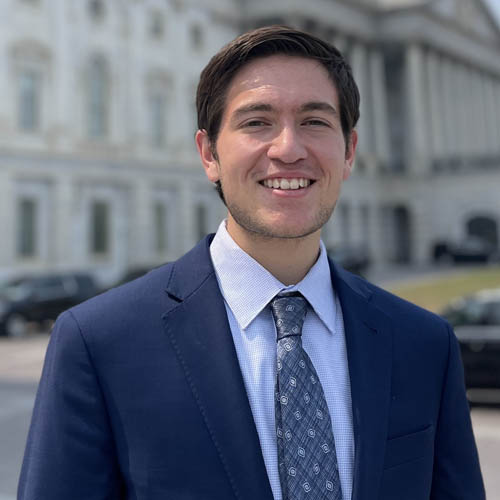 Diego Tovar — Assistant Director of Campus and Civic Engagement Diego Tovar — Assistant Director of Campus and Civic Engagement
Diego Tovar, Assistant Director of Campus and Civic Engagement, holds his master’s in Global Environmental Policy from American University and an undergraduate degree as a Udall Scholar in Ecosystem Science and Sustainability with a minor in Political Communication from Colorado State University. Diego has worked for the White House Council on Environmental Quality, the Environmental Protection Agency, the U.S. House of Representatives, and the Navajo Nation Washington Office focusing on climate justice and climate adaptation. | | | | | | The Rachel Carson Council (RCC) Leads “Intergenerational Activism” at Maryland Climate Summit Many of us have heard the phrase “#OK, Boomer.” That insult, described as a “digital eye roll,” went viral in the early 2010s as younger generations accused older ones of failing to act on climate change and other social issues. But is that narrative completely true? While younger generations are vocal in their (righteous) frustration toward older generations’ failure to address climate change, there’s a quieter, more hopeful narrative prevailing at organizations like the Rachel Carson Council (RCC). | | | | | | | | The Rachel Carson Council in South Carolina A land grant university with a founding mission of sustainable agriculture and a sustainable economy, the modern Clemson University has expanded its mission into a calling to operate the university and educate its students with a priority of social, economic and environmental well-being. Since 2007, Clemson has been a charter member of the American College and University Presidents’ Climate Commitment, implemented a strong Climate Action plan keeping carbon emissions at the 2007 level even though since then Clemson has grown tremendously. | | | | | | | | Sustainability and Justice in the Heart of New York City Nestled in the vibrant streets of Greenwich Village, New York University (NYU) is not only a global leader in education but also a trailblazer in sustainability. Committed to reducing its carbon footprint, NYU has pledged to reach carbon neutrality by 2040 and has already made significant strides through energy efficiency upgrades, renewable energy purchases, and waste reduction initiatives including: Over 3.2 million square feet of LEED certified building space, over 500 courses on sustainability topics, and a 00 climate-related events held every single academic year. | | | | | | | | Building Sustainable Cities, One Borough at a Time Located in the heart of Queens, Queens College, CUNY stands as a hub of sustainability and social change within the City University of New York system. Committed to reducing its environmental impact, Queens College has integrated urban sustainability initiatives into its curriculum, advancing research on environmental justice and urban planning. The college is home to green infrastructure projects, sustainable food systems research, and strong student-led advocacy for climate action. | | | | | | | | Riding the Green Wave at Stony Brook Stony Brook University is at the forefront in confronting the climate crisis with urgency. Named the anchor institution for the New York Climate Exchange, a first-of-its-kind international center for developing and deploying dynamic solutions to our global climate crises, they have quickly risen to become a leader in sustainability and action. Home to the School of Marine and Atmospheric Sciences (SoMAS), the university is at the forefront of coastal resilience research, renewable energy solutions, and climate adaptation strategies. | | | | | | | | The Cost of the Government’s Attack on Columbia American universities have given the country prosperity and security. The Trump administration’s attack on academic freedom endangers all of that. The United States is home to the best collection of research universities in the world. Those universities have contributed tremendously to America’s prosperity, health, and security. They are magnets for outstanding talent from throughout the country and around the world. | | | | | | | | Hundreds Of Jewish Academics Condemn Trump Attacks On Universities “The knock-on effects of this will be catastrophic,” one co-author told HuffPost. Hundreds of Jewish professors, scholars and students have signed a letter condemning the Trump administration for canceling $400 million in federal funding to Columbia University and threatening other universities. Columbia is reportedly nearing an agreement with the Trump administration, which pushed an aggressive slate of demands on the university that critics said were a grave threat to academic freedom. | | | | | | | | | | AAUP and AFT Sue Trump Administration Over Threats to Defund Columbia University Much of the higher education world has watched with trepidation as an unprecedented situation unfolded at Columbia in less than three weeks. In early March, the federal Task Force to Combat Anti-Semitism — a multi-agency coalition created by President Donald Trump through a January executive order — announced an investigation into Columbia over allegations that the university failed to protect Jewish students from harassment amid ongoing pro-Palestinian protests. | | | | | | | | Opinion: We Should Empower Youth to Fight For Environmental Justice in Their Own Neighborhoods I’m a recent high school graduate who lived and breathed for most of my life in Braddock, Pennsylvania, about nine miles southeast of Pittsburgh. Braddock is home to the Edgar Thomson Steel Mill, owned by U.S. Steel, which Nippon Steel recently tried to purchase before the deal was blocked. During the last year of my high school career, I opened my eyes to the realities of environmental injustice in my neighborhood. | | | | | | | | Indigenous Stewardship is Climate Justice In the wake of several executive orders over the past month-and-a-half from the Trump administration, many environmental advocates are left wondering what the future of climate action looks like. Among concerns about air and water quality, regulations on fossil fuel companies, and support for designated environmental justice communities, there are also anxieties about the future of national parks and public lands as the administration recently laid off thousands of employees from the National Park Service, U.S. Fish and Wildlife Service, and the U.S. Forest Service. | | | | | | | | How New York City’s Canners Have Turned Recycling into a Livelihood When we throw away our trash, most of us don’t think twice about its contents, let alone whether some bottles could’ve been recycled. It’s easy to chalk it up to not making a big difference. But sometimes that bottle, or two, finds their way to recycling centers – and not by accident. We can thank canners for this. I had the opportunity to interview Josefa Marín, who came to the US in 1987 from Puebla, Mexico, and has been a canner for 20 years in New York City. | | | | | | | | Sweet River Will flits around me, capturing photos silently. His camera’s electric shutter doesn’t make a sound. The quiet lets my anxiety stir deeper, and sitting on the picnic table in the morning sun at Hurricane Creek Park, I feel heavy. I’ve arrived 10 minutes late for my first ever journalism interview. Twenty minutes later, the source still hasn’t shown up. He probably thought I wasn’t coming and left, and I’ve missed the opportunity to learn about the sewage spills in Tuscaloosa, Alabama, where over 2 million gallons of raw waste have leaked into Hurricane Creek. | | | | | | | | The Activist’s Case for Saving Theaters and Producing Evocative Environmental Films Every avid movie-goer knows actress Nicole Kidman’s iconic preamble to films shown at AMC theaters. One remarkable bit goes “...we need that, all of us, that indescribable feeling we get when the lights begin to dim and we go somewhere we’ve never been before; not just entertained, but reborn—together.” It was just a few years ago that movie theaters were suffering more than any point in recent history | | | | | | | | Lois Gibbs: The Mother Who Took on Toxic Pollution Lois Gibbs is a trailblazer in the environmental justice movement, proving that ordinary people can take on powerful corporations and government agencies—and win. As the leader of the fight to evacuate and relocate families from Love Canal, she exposed the devastating impact of toxic pollution on communities and transformed the national conversation around environmental health and corporate accountability.’ | | | | | | | | The Insect Epiphany: How Our Six-Legged Allies Shape Human Culture
(Timber Press, October 15th, 2024) 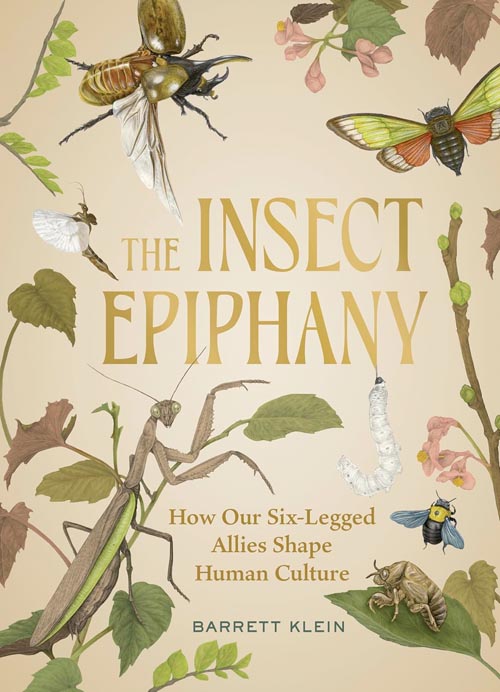 The Insect Epiphany by Barrett Klein is a fascinating exploration of how insects have influenced human innovation, culture, and daily life. From art and architecture to medicine and technology, Klein makes a compelling case for why these tiny creatures deserve more than our reflexive swats. The Insect Epiphany by Barrett Klein is a fascinating exploration of how insects have influenced human innovation, culture, and daily life. From art and architecture to medicine and technology, Klein makes a compelling case for why these tiny creatures deserve more than our reflexive swats.
The book dives deep into the symbiotic relationships between humans and insects, touching on everything from silkworms to gall wasps. Klein’s passion shines through when discussing his personal experiences with many tiny creatures and his encounters with nature. Throughout the book, Klein masterfully details how insects inspire design and sustainability.
Insect Epiphany is filled with illuminating anecdotes, stunning illustrations, and thought-provoking discussions on our often-overlooked six-legged allies. Klein’s work is a must-read for anyone looking to develop a deeper appreciation for the insect world and its profound impact on human civilization. The Insect Epiphany - Purchase Here __________
Diego Tovar — Assistant Director of Campus and Civic Engagement Diego Tovar, Assistant Director of Campus and Civic Engagement, holds his master’s in Global Environmental Policy from American University and an undergraduate degree as a Udall Scholar in Ecosystem Science and Sustainability with a minor in Political Communication from Colorado State University. | | | | | | RCC prides itself on its National Campus Network of more than 75 colleges and universities. We are working to engage faculty members, students, and administrators in our efforts for a more just and sustainable world. With our growing fellowship program, our presence on campuses across the country has never been greater. Contact RCC today to bring our staff to your campus for lectures, workshops, or meetings to help find the best ways to engage your faculty and students in the efforts against climate change, environmental justice, and the work of the Rachel Carson Council. Campus Visits with RCC President, Dr. Robert K. Musil 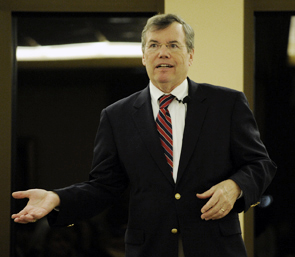 RCC President & CEO, Dr. Robert K. Musil, a national leader in climate change, environmental justice and health is available to book for in-person campus speaking events! Musil has been called “informative, challenging and inspirational all at once.” He is “motivational” with “intellectual depth” and “extraordinary impact.” RCC President & CEO, Dr. Robert K. Musil, a national leader in climate change, environmental justice and health is available to book for in-person campus speaking events! Musil has been called “informative, challenging and inspirational all at once.” He is “motivational” with “intellectual depth” and “extraordinary impact.”
Dr. Musil offers compelling campus lectures and visits involving classes, meetings with campus and community groups, consultations with faculty and administrators, or for Earth Day, Commencement, and other special events. Stays range from one to three days. Reduced fees are in place for 2025-2026 and can be designed to meet reduced budgets. To arrange a campus visit with Dr. Musil, contact the RCC President’s Office at bmusil2@yahoo.com The RCC also offers talks, classes, and workshops on student engagement, activism, sustainability, and the RCC Fellowship program with: Director of Communications, Claudia Steiner; Assistant Director of Campus and Civic Engagement, Diego Tovar; Associate Director of Policy and Programs, Theo Daniels and Assistant Director of Policy and Programs, Joy Reeves. To arrange, contact Assistant Director of Campus and Civic Engagement, Diego Tovar. | | | | | | | |  The Rachel Carson Council Depends on Tax-deductible Gifts From Concerned Individuals Like You. Please Help If You can. The Rachel Carson Council Depends on Tax-deductible Gifts From Concerned Individuals Like You. Please Help If You can. | | | |  Sign Up Here to Receive the RCC E-News and Other RCC Newsletters, Information and Alerts. Sign Up Here to Receive the RCC E-News and Other RCC Newsletters, Information and Alerts. | | | | | | | | | | | |